An Appointment with ASIYA ABDULRAHEEM (Dietitian)
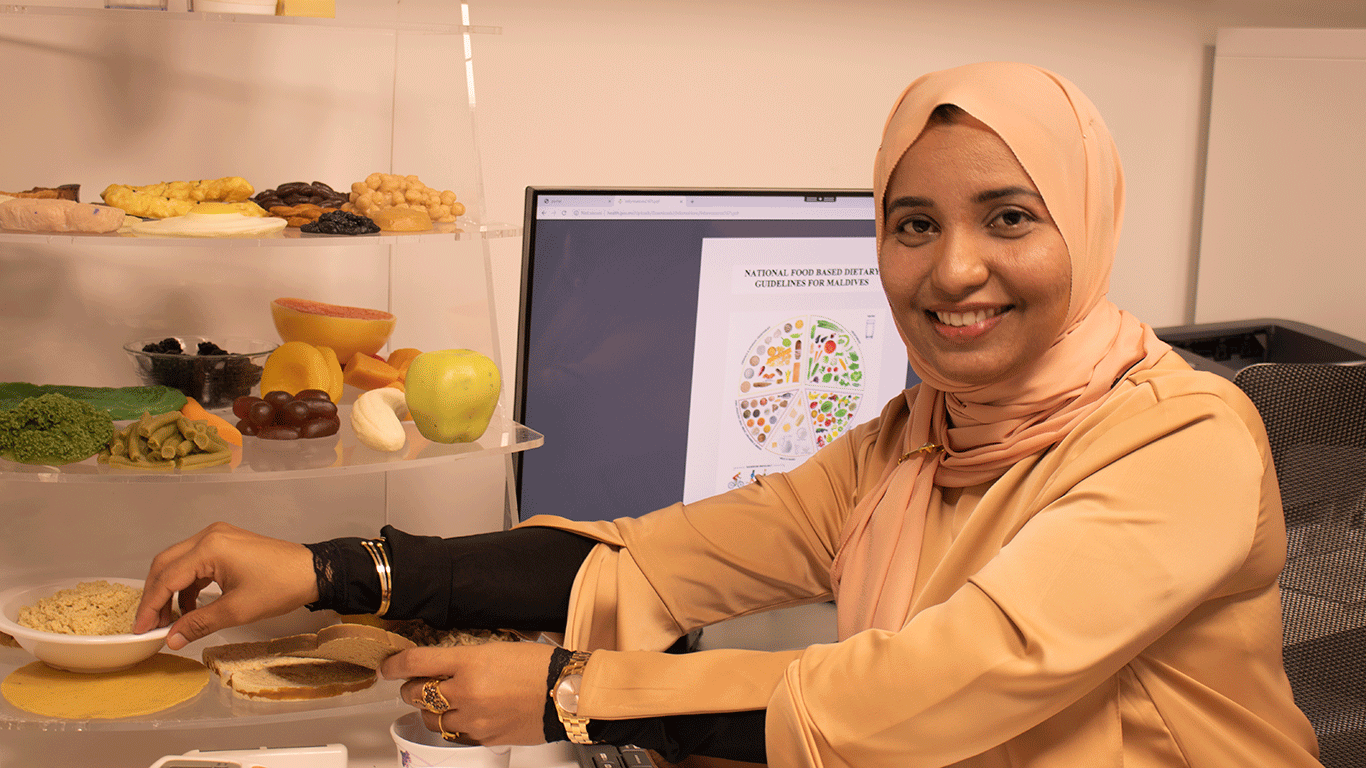
What was your path to becoming a dietitian?
After finishing my A’levels I searched for something I can study here at home, and what I liked most from the options was laboratory technology. I graduated in 2004 and I worked in IGMH until 2010 as a laboratory technologist. It was an interesting job. IGMH is amazing towards their staff, and recognizes their work. I also got an opportunity to undergo an intensive training in Blood banking in Thailand.
I then moved to Malaysia, and I my husband back then gave me the opportunity to study there. Again, I searched for a course to study. There were many options there. The three that I liked most were Dietetics, Nutrition and Physical Education. Although Dietetics and Nutrition are considered the same in some countries, in Malaysia, Dietetics is different from Nutrition. Nutrition is more to do with public. Dietitians are Nutrition experts, and is more on curative side of diseases, and more individualized. Dietetics was the course that piqued my interest since I always wanted to help those that are sick. Even as a technologist, I wonder about topics such as using diet to increase hemoglobin levels and diet modifications to control weight. Since dietetics had the answers to my questions. It was my top choice, and I got my top choice.
After starting my course, my interest in this field continued to grow. Courses like Physiology, Biochemistry, Anatomy, Clinical Nutrition, Medical Nutrition Therapy, Food and Drug Interaction, Psychology and Patient Education and Counselling were some of my favorite Courses. I also enjoyed my classes in Institutional Food service management, sports nutrition, community dietetics, interpersonal communication skills, nutrition through life cycle, public speaking, academic writing, dietetic research, Nutrition and Metabolism and Drug metabolism. A combination of these courses along with many other courses and 1 year of posting in different institutes is what made dietitians.
I graduated from Universiti Putra Malaysia (UKM) in late 2015, and have been working in IGMH as a Dietitian since March 2016.
What are your roles as a dietitian?
Dietetics is a career with a huge scope. Dietitians work as clinical dietitians, community dietitians, food service dietitians, sports dietitians, in field of research, as lecturers or writers.
As a clinical dietitian, the role of the dietitian is to assess, diagnose and management people with different types of diseases. Clinical dietitians work in both Out-patient depart to give dietary counselling and patient education, and in the in-patient department to tailor nutrition plan for the patient. As a clinical dietitian I have been working in out-patient department of IGMH, and few clinics including AMDC clinic. I have also worked in Family care and Vital care, and seen patients in island visits. Most commonly types of patients we receive in the Maldives come for weight reduction, weight increment, blood sugar control, blood cholesterol control, diet adjustments in kidney diseases, cancer, and many other illnesses. In the In-patient department, nutrition and diet are tailored in 3 main ways: oral intake, enteral nutrition and parenteral nutrition. For those who are admitted, and able to take orally, diets and food consistency are modified according to instructions by the dietitian. For those patients who are unable to take orally, nutrition is provided by tubes passed to the stomach. For those who are not able to take by this rout, nutrition is provided intravenously using special nutrition packs. In IGMH we practice all these.
My best interest is working with critically ill patients, surgical patients, cancer patients, patients with chronic kidney diseases, and other admitted patients with metabolic crisis. Managing these patients are more challenging for me as there is no single guideline or book on how to manage these patients. I need to be equipped with excellent background knowledge, critical thinking and clinical decision making to manage these patients.
Secondly, food service. In other countries, hospitals contain a dietary service, where in-patients are provided their daily meals under the guidance of a dietitian. However, here in Maldives, we do not have such a service yet. To establish such a kitchen will take a huge investment and careful planning, because quality is essential. It is important to have a dietary service because nutrition is a large contributor for recovery. The medicine they take travel through the body because of the nutrition.
Thirdly, in community dietetics, dietitians work along with nutritionists in the community. They are focused more on the preventive side. We analyze the issues inside the community and try to resolve them through awareness and education. For example, I was a consultant for the school nutrition project. We first assessed the nutrition problems that students face in various schools, and designed the meal plan accordingly.
Fourthly, sports dietetics. I personally have worked as a sports dietitian in the National Sports Council of Malaysia. Elite athletes have their meals inside the complex, especially during their practice sessions. One of the key components in sports is nutrition. For different sports, muscle mass required varies. We as dietitians tailor their nutrition according to their needs.
Fifthly, research. In the Maldives, we have had few researches conducted in the field of dietetics. If I remember correctly, only 4 were conducted. In 2014, I conducted a research on the nutritional status of the elderly, and am currently doing another research among critically ill patients. Nutrition and diet vary from region to region and countries to countries. Hence, it is crucial to have researches done on our community eating habits. Global nutrition guidelines also need to be tailored specifically to our community.
Penmanship is also very important as a dietitian. I really wish that more dietitians will write articles in Dhivehi language, so people will have access to accurate information regarding diet and lifestyle. At present, as far as I know, I am the only Maldivian dietitian who writes articles in Dhivehi language. I write to online magazine. This is not enough. Nowadays, younger generation is much better on things like Instagram, twitter, and others. I really wish other dietitians will take lead in spreading accurate dietary information.
Finally, some dietitians work in the education sector. Currently, in the Maldives, we are unable to start university level dietetics courses because we need qualified dietitians that have completed their Master’s level or PhD.
Many people are now opting for the Holistic approach. What are your views on it?
A holistic approach is important. I advise all my patients not to rely on diet alone but to consider all other aspects as well. Here in the hospital we work as a team. Doctors will advise the patient whether to start their medications immediately or not. We as dietitians, then advise the patient accordingly. Diet cannot be used as an alternative therapy, but should be used with medications and treatments.
Yet, in some cases like high cholesterol levels, high blood pressure and diabetes, if it is not critical, we can treat them using diet and lifestyle modifications only. But this should be decided by the doctor.
What are the most common nutritional mistakes you observe in patients?
The biggest mistake I identified is patients not having enough meals. This is seen especially among patients that want to lose weight or control their blood sugar levels. A minimum of 3 meals is required every day. Even if someone is fasting, 3 meals can be fit into the schedule. Ideally, there should be 5 meals. 3 main meals and 2 snacks in between.
Secondly, patients do not have meals at their appropriate times. For example, breakfast should be early morning. However, for most people, breakfast is taken late morning.
Thirdly, your daily meals should include the 5 food groups. Even if you want to lose weight, you should not omit any of these groups. People usually stop eating the cereal/grains group. The immediate effect is losing weight, however, you become nutrient deficient. You are malnourished. This is because this group contains a lot of d-vitamins. After some time, it is likely that the person will get sick if this group is omitted. Furthermore, in our community the intake of dairy is less. Some of them stop due to the thinking that dairy helps gain weight. The main source of vitamin D is sunlight but the next source is dairy. If someone stops consuming this group, calcium and vitamin D deficiency would occur. Researches show that daily 2 glasses of milk are necessary. They also show that milk and dairy could in fact help you lose more weight.
In addition, some people consume “diet” products such as diet tea. However, these are not recommended. Some of these products act as a laxative and help the person lose weight by the frequent passing of undigested food.
Make sure you enjoy what you’re eating. It should be tasty and prepared well. This way you are receiving the full benefit of your meal.
If you are stopping any type of food, stop simple sugars. And stop eating fried foods such as fried breadfruit (bambukeyo).
What is a typical breakfast, lunch and dinner for you?
I have simple, Maldivian style meals mostly. My husband likes it that way as well. However, on certain days, I do prepare a bit of western style meals too.
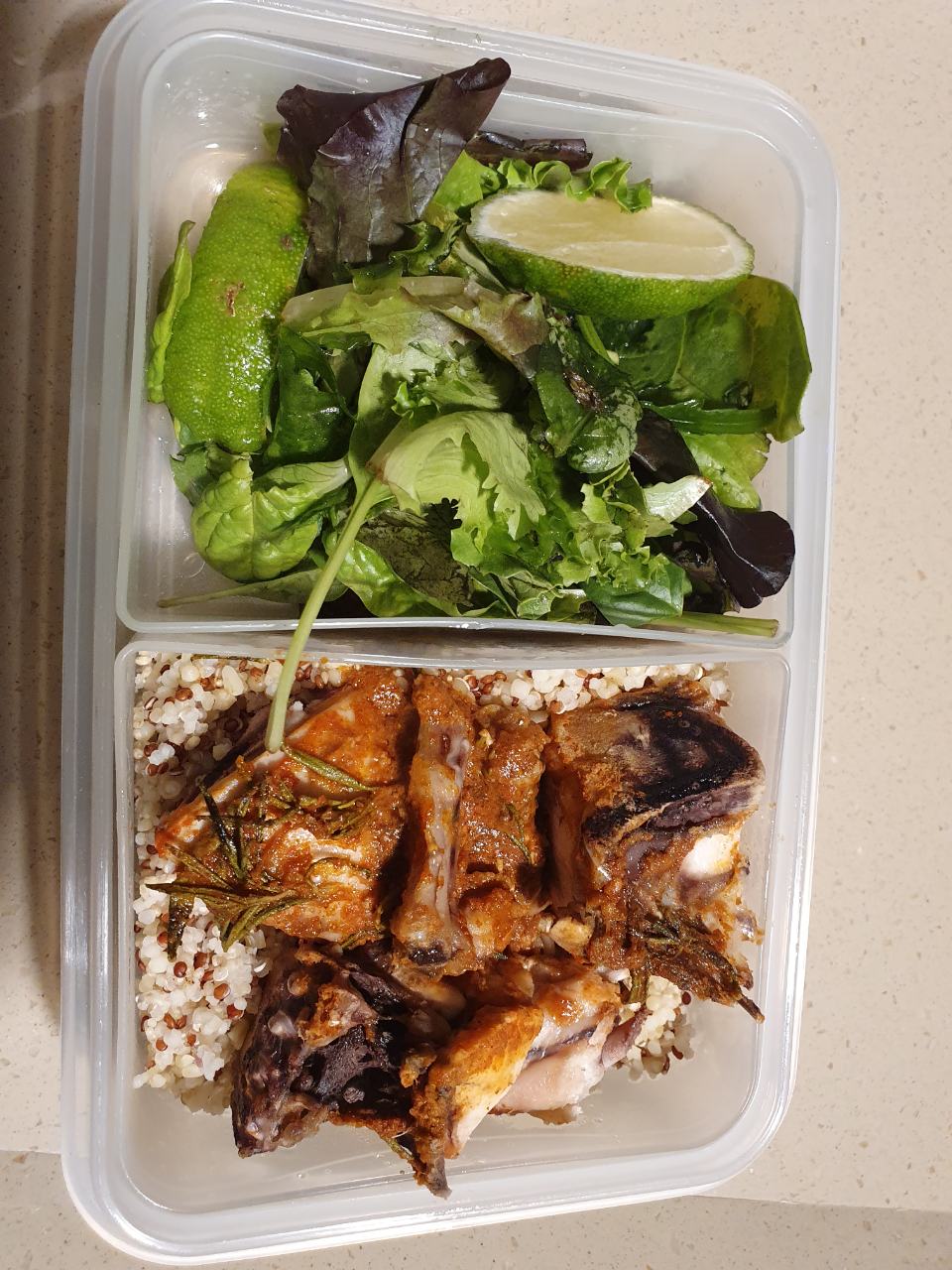
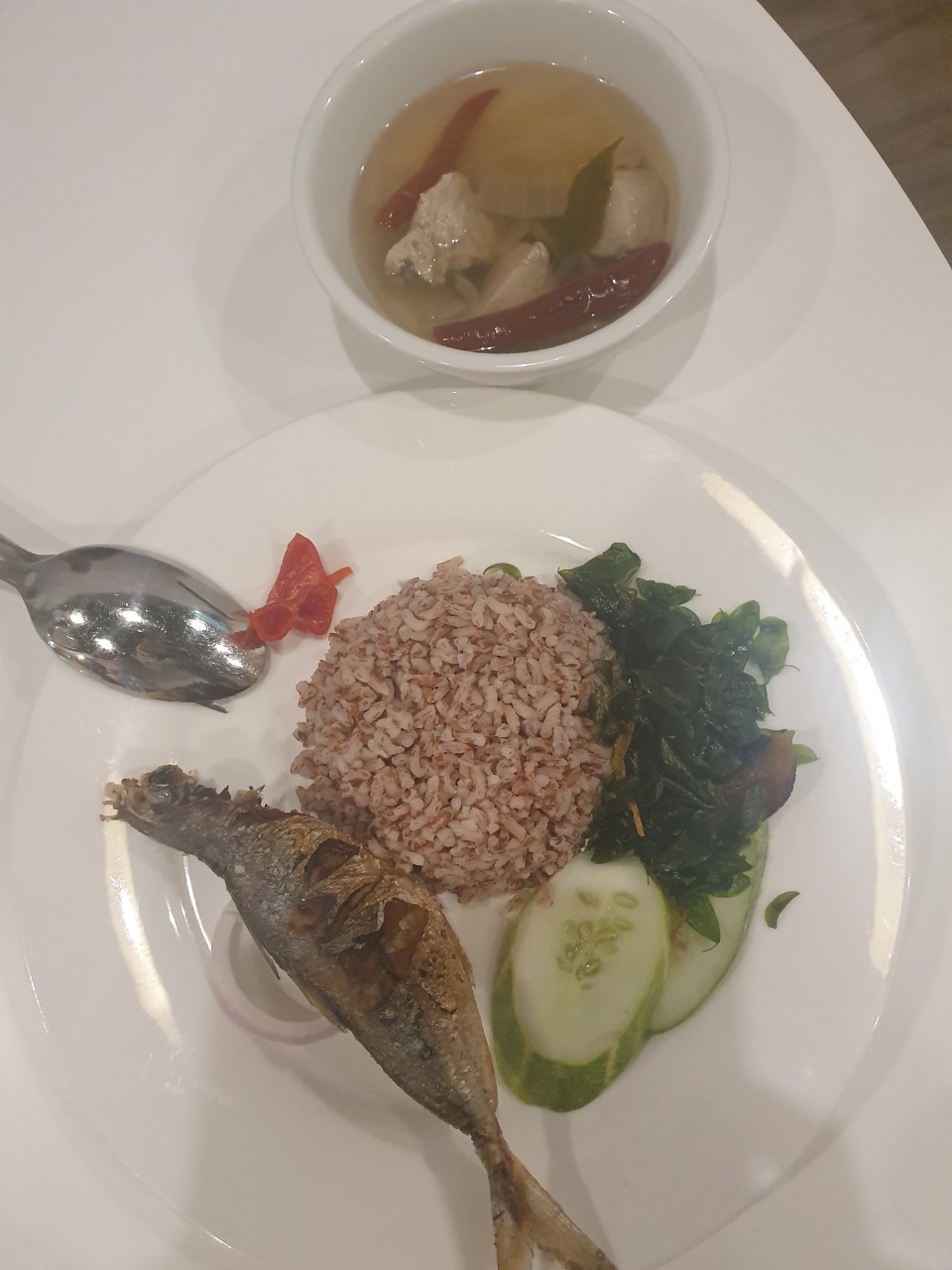
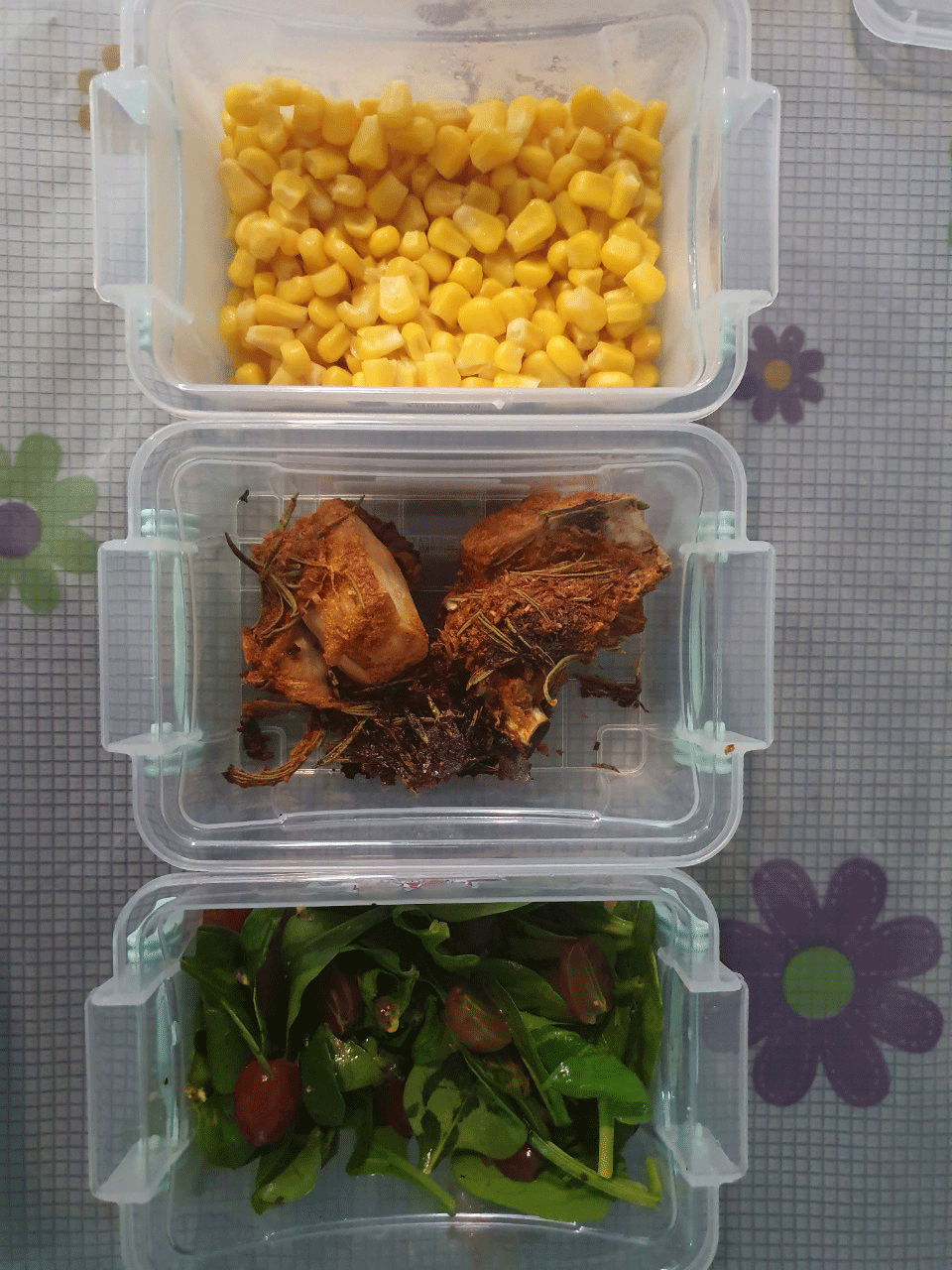
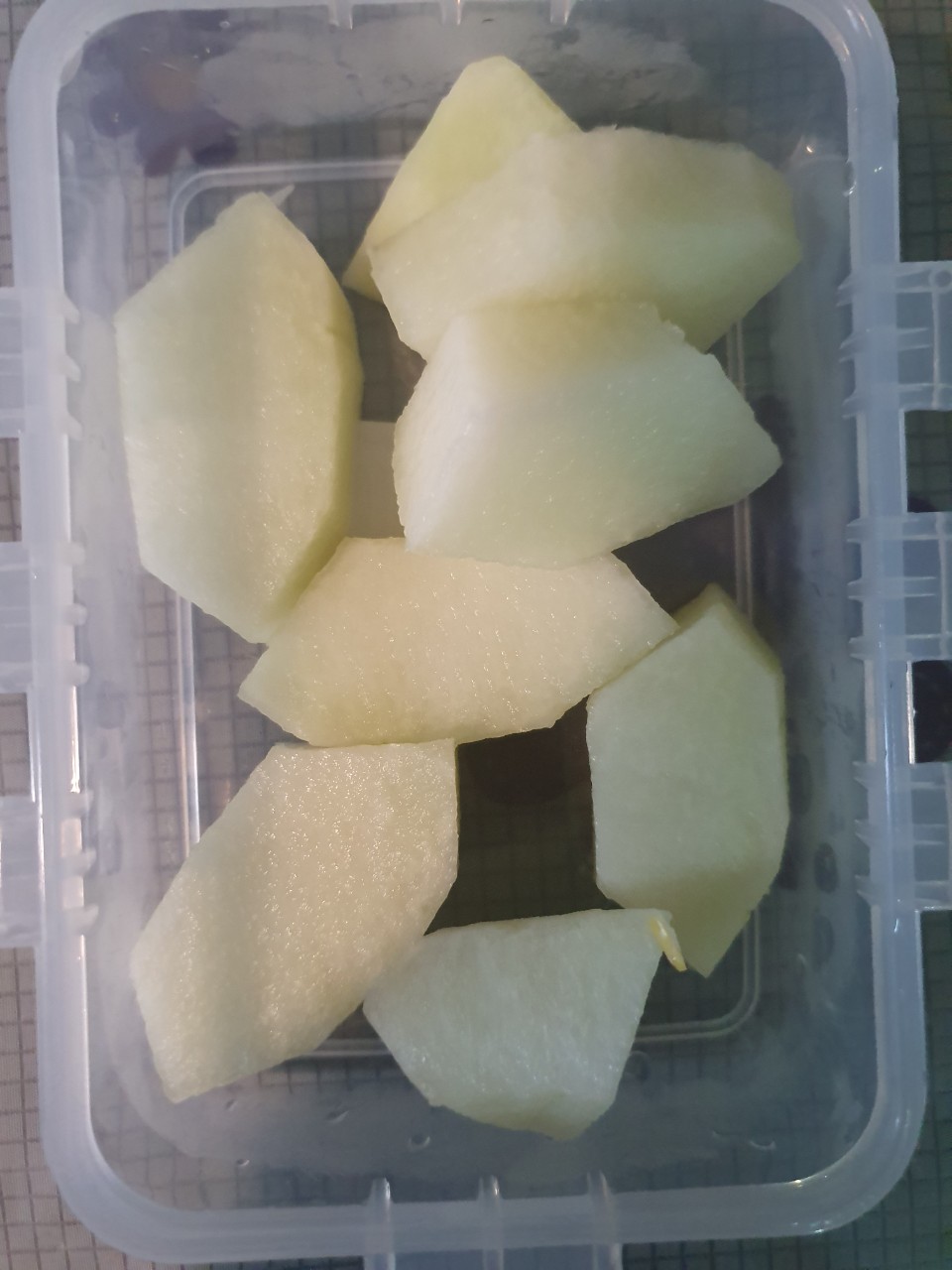
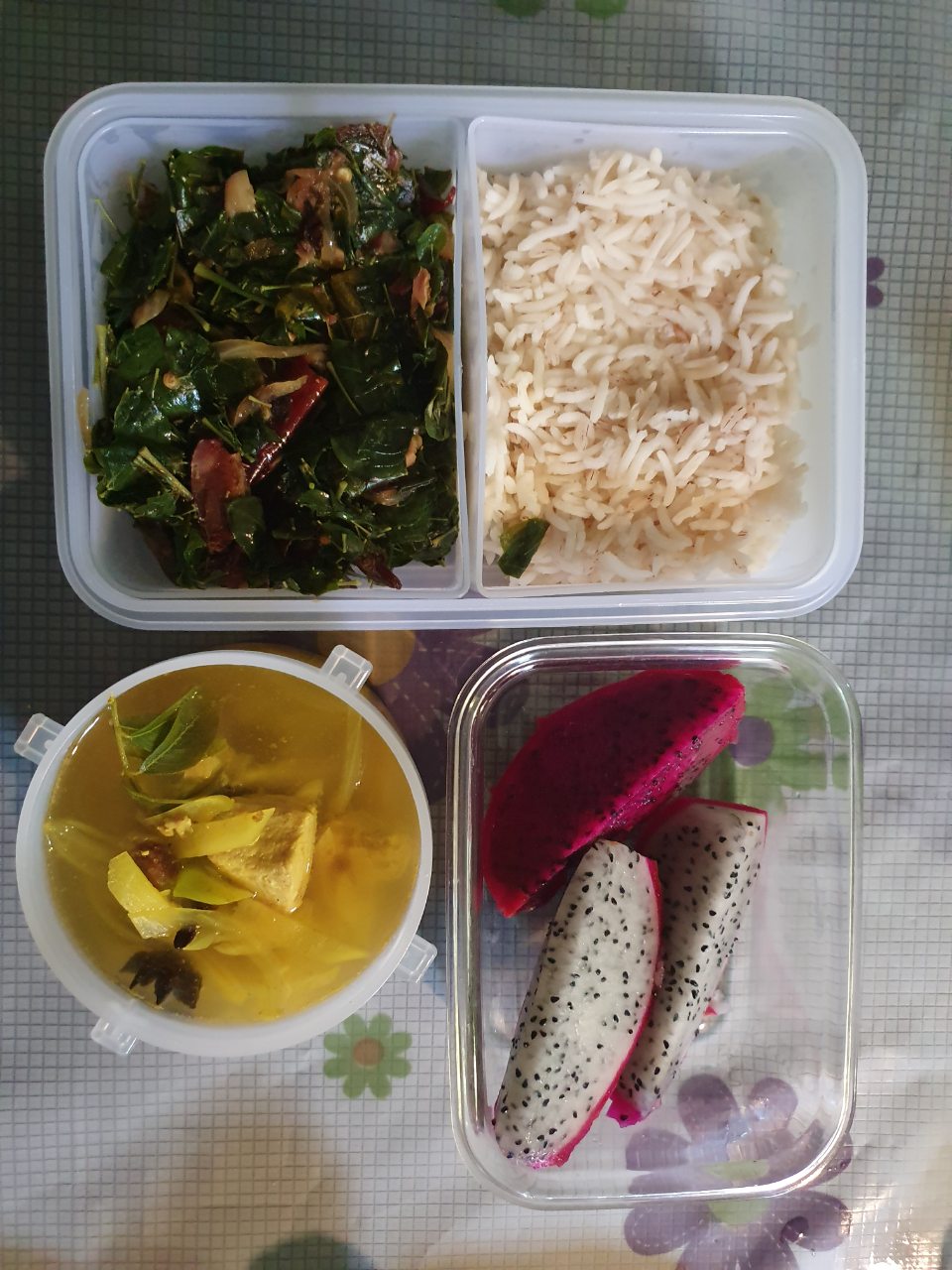
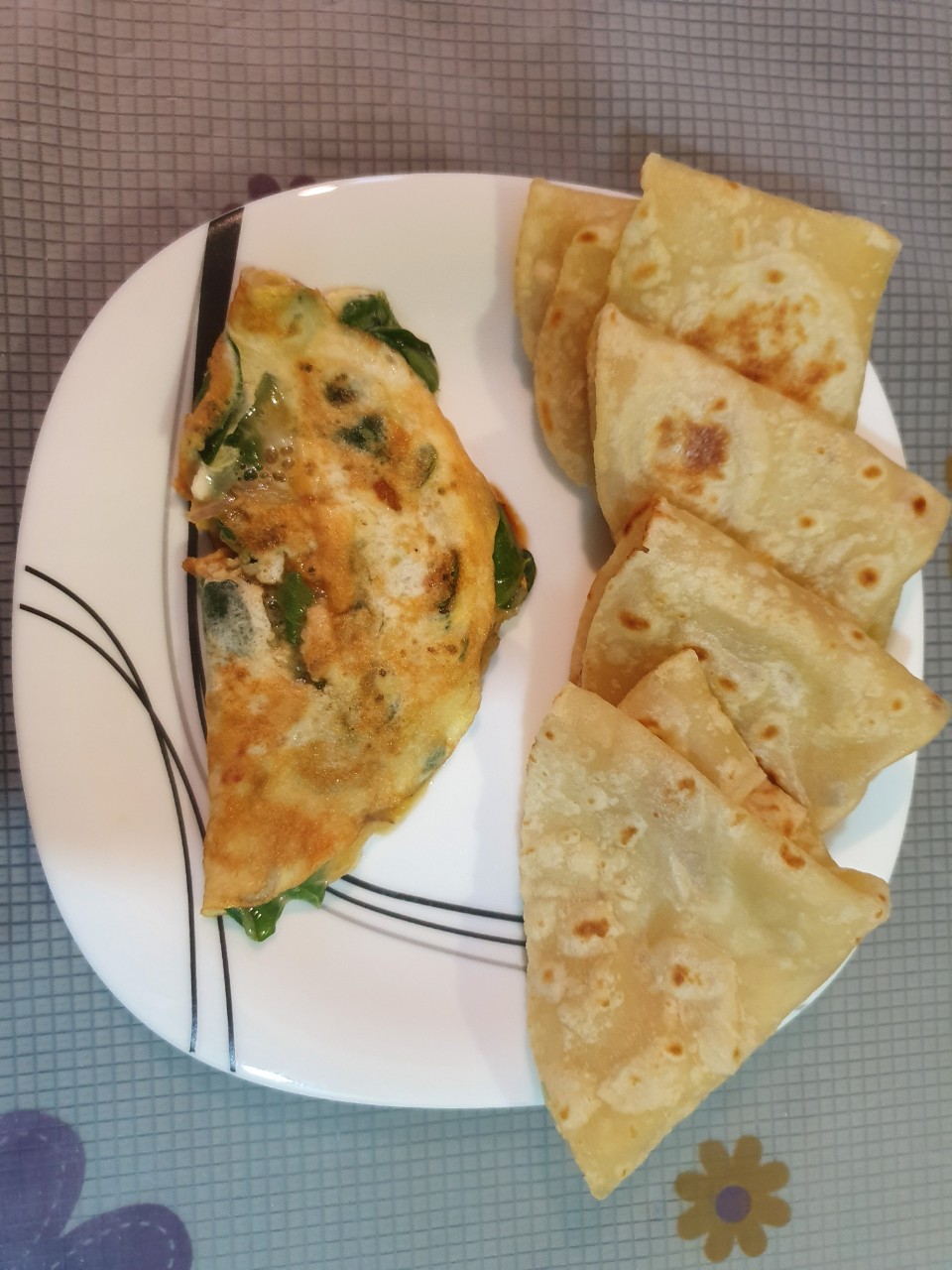
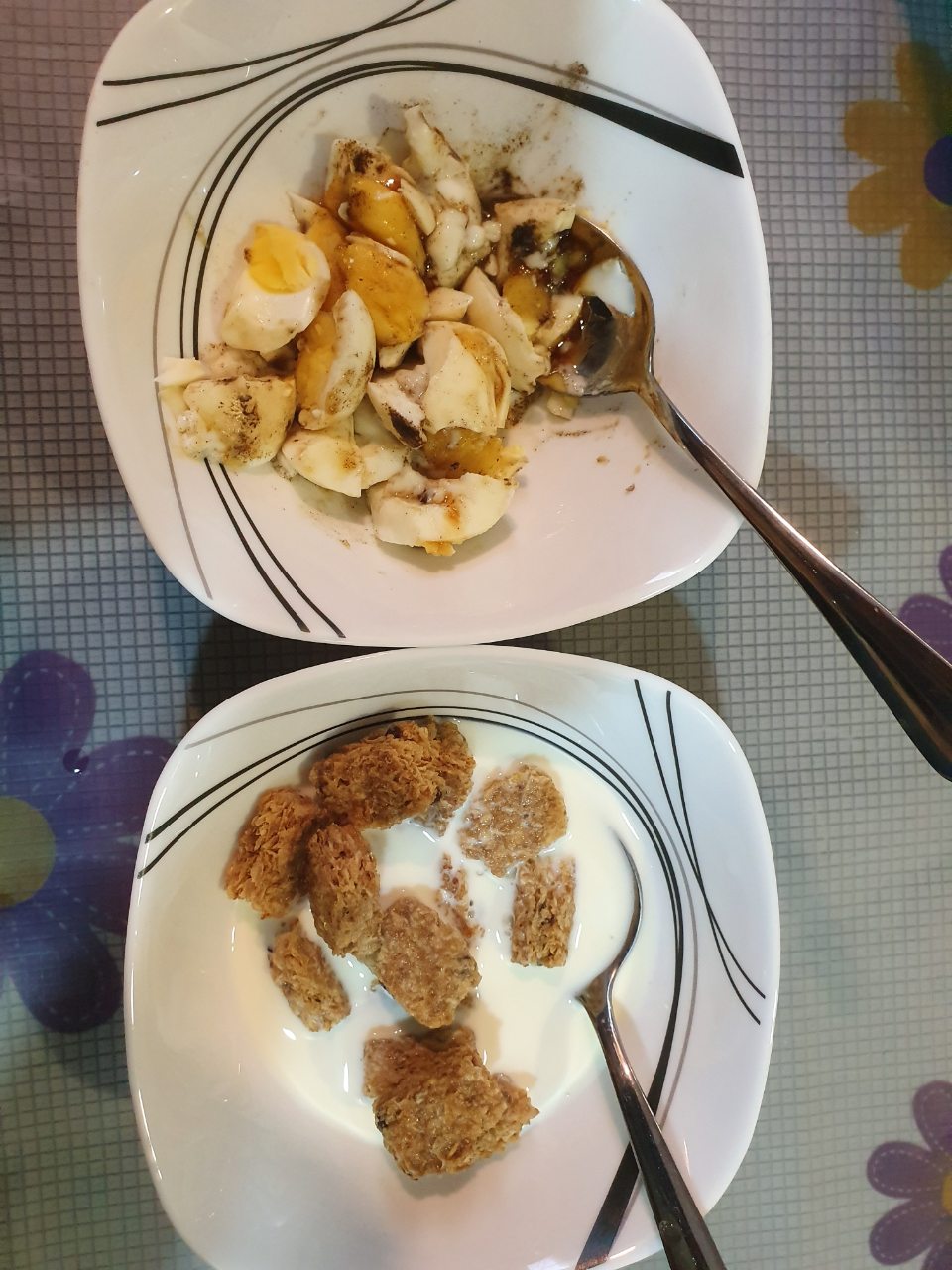
These are some of the examples of what I eat every day. There are also somethings I focus on as a dietitian.
-
I never skip any meals unless I face an urgent matter
-
I include the 5 food groups in my meals every day
My usual breakfast is, roshi made with combination of oats flour and wheat flour with something like kulhi mas or omelet. On days that I feel lazy, I have ready-made cereal with soft-boiled eggs and a glass of milk. I have my breakfast early in the morning. My lunch is usually rice with a curry made without coconut milk or garudhiya, and baked fish and satani. Same goes for dinner. Lunch is at exactly 12 pm, and dinner is usually after Maghrib or Ishaa prayer. Plus, I have small snacks in between meals. In the evenings, I sometimes have tea with my co-workers and friends. As I mentioned before, eating should be fun and must be done with your friends and family.
My intake of meals is more than most people, since I normally exercise 2 hours a day. After exercising I have a milkshake that includes fruits and milk only.
On the question of what kind of milk to have, I prefer full cream milk as it contains vitamins such as A, D, E and K.
In your opinion, what can be done to improve the health sector of the Maldives?
I hoped when the new Minister of Health was appointed, that the ministry would seek our ideas more. Healthcare has 3 fields; doctors, nurses and allied health professionals. But since allied health professionals are few in the Maldives, I think we are left aside.
It is important to build allied health in our country. For example, even though it is difficult to appoint a dietitian in every major hospital, we are ready to help educate and prepare staff. We’ve been already doing this in our spare time, but since we’re also extremely busy we have been unable to continue. Currently in hospitals, nurses play an important role in educating patients. Since dietitians are less, nurses sometimes have to provide nutritional advice to patients as well. This is seen in Atoll hospitals and Regional hospitals too. I believe that our current dietitians can give general dietary training to these nurses so that they can give nutritional advice properly. If someone can arrange these trainings it would be beneficial to our whole community.
Secondly, when teams are made to provide and promote nutritional education to the public, dietitians are not involved. The teams do contain capable members such as senior doctors and community speakers. Yet, in each community diet differs. A dietitian would be able to understand these changes better, and would be able to contribute significantly to these causes. Sometimes, these members do come to us for our consultation, but I believe it is difficult to give our time in those circumstances. Rather, it would be better if we could be part of the team.
What are 3 key pieces of advice you will give to anyone about their diet?
In general, every person should focus on the following points:
-
Have early meals and do not miss them
-
Include the 5 food groups in your meals for the day
-
Grains
-
Fish, Meat and alternatives
-
Dairy
-
Fruits
-
Vegetables
-
-
Decrease sugar and fried food intake
-
Decrease intake of processed and ultra-process meals
-
Exercise 30 minutes a day, 5 times a day
-
Enjoy your meals with friends and family
What would you like to say to anyone interested in this field?
Currently in the Maldives, there are only 5 dietitians, of which all 5 are working in capital Male’ and 4 are working in hospitals and clinics.
It is an extremely interesting field. As I mentioned before, during the education it gets more and more interesting each passing year. The practical training is then much more enjoyable and interesting, and when you finally start working you are deeply invested in this field.
There is a misconception that we only study about food. We study the human body deeply with subjects such as Anatomy, Physiology, Biochemistry and Genetics, along with nutrition because this is what makes up dietetics.
When we are working as a healthcare professional, our role is just as important as any other.
Furthermore, in the Maldives, other healthcare fields have already been established. But dietetics has not been yet. So, as dietitians it is much more challenging for us. But if you come to the Maldives as a dietitian, we can build new things and you can be a pioneer in this field for our country.
As I mentioned before, there are a lot of directions you can move towards as a dietitian. For me, I like to be in the ICU and hospitals, but if you are more interested in Sports or Community education, you can do that work here. There are a lot of opportunities here. We welcome you.
In terms of salary, it depends on how much you work and how motivated you are. You might not earn as much in the hospital, but outside projects and clinic work pay a lot. If what you want is a good salary, you can earn in this field.
You will get to challenge various issues in our community. For example, we debunked the myth that skipping meals is good, and rice is bad for you. You will feel happier that you are able to do this and educate people.
If you are interested in this field, you can volunteer in our projects and work with us in order to learn more. Since, dietitians are a scarce resource in hospitals, it is difficult for students to work with us in the hospitals. Nevertheless, I welcome you to help us in my personal projects. Approach me, but in the right way.
Who are your most inspiring health professionals in the Maldives?
Late Dr. Ahmed Raazee – when I first joined this field, he was one of the most popular doctors in this country, and I find him inspiring.
Dr. Abdul Azeez Yoosuf – He has been one of my supporters and inspirations. I told him that I was interested in clinical dietetics. And he advised me to do some community work since dietitians are less in this country. So, I started doing it and I think I was able to reach more people that way.
Dr. Abdulla Niyaf – He is well educated in nutrition. Hence, what his advice to patients match with our thinking as dietitians. He doesn’t restrict food to children and he understands parents thinking and worries.
Dr. Ali Nazeem – medical administrator at IGMH. One of my biggest supports and inspirers. He gives positive feedback to all the work I do in the hospital and that motivates me a lot.
Dr. Ali Abdulla Latheef – my supervisor in the Internal Medicine department. He also gives me feedback on the work that I do. Even if I do something wrong, him and Dr. Ali Nazeem gives me direct comments, and it helps me do my job properly. He also treats me with respect and kindness.
Dr. Aishath Aroona – even though we have not worked together, she does a great job in the field of public health. She has contributed greatly, especially, in the prevention of smoking in our community.
Mariyam Najla – the first dietitian in the Maldives. Whenever I have any question about this field, I go to her immediately. Also, whenever I write an article, she reads all of it and comments on it as well.
I would also like to mention the 2 dietitians working in IGMH with me. Malaha Abdul Rasheed and Aminath Iasha. Malaha respects me a lot and is very good to me. Iasha is a very knowledgeable and excellent dietitian, and I really like her.
Finally, every single person that works with me is extremely nice. I’m inspired by everyone here.

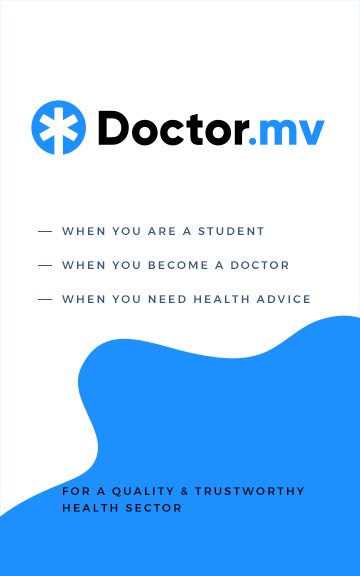
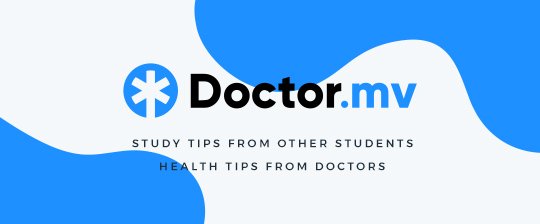
Leave a comment
0 Comments